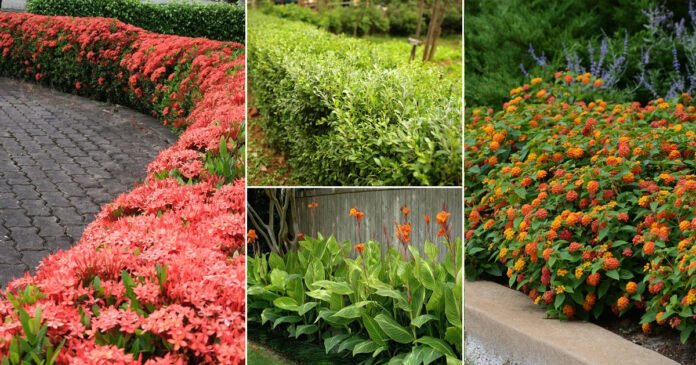Choosing the right hegdes like Heckenpflanzen and plants for your garden is an important step to take. These plants are able to provide your yard with privacy, noise buffering and wind blocking. They are also able to give your garden a unique look.
Dwarf varieties
Whether you have a small patio or a large front entry, dwarf varieties of hedges and plants can help you create a beautiful multi-season display. They can be planted in a single color, mixed with other plants, or used as a foundation plant. They are a great way to accent a boulder or a sculpture. These compact plants also make wonderful ground cover. They should be planted in a well-drained soil and mulched with organic matter.
Commonly known as ‘William Penn’, this dwarf shrub has bright yellow flowers. It is often used to create a defensive hedge, or as an edge around a vegetable patch. Its foliage is attractive to birds. However, it can hinder passing animals, sometimes by gobbling up their seeds.
Another low-growing plant is Japanese skimmia, a broadleaf evergreen. It produces fragrant white flowers in spring and produces red berries in winter. Its glossy green oval leaves are ideal for a low-growing hedge or foundation planting.
Read also: Organic Gardening Basic Tools
Pollution-resistant varieties
Species choice in urban hedges is a crucial decision. It is not just about promoting biodiversity, but also about improving air quality. A few species deliver an impressive array of services.
A study by the Royal Horticultural Society (RHS) has identified a number of species that are likely to perform well in urban environments. These include Fagus sylvatica and Crataegus monogyna, both of which offer multiple services. These hedge plants are also likely to perform well in terms of noise mitigation.
Other pollutant-resistant trees include bur oak, Japanese zelkova and beech. There are also several varieties of hedging that can perform well in urban contexts.
In addition to these, a few hedge species offer multiple benefits, such as providing shelter and a natural living barrier. Some may also offer benefits in the form of rainfall capture and regulating temperature.
Privacy
Using a privacy hedge to create privacy in your yard can be an easy way to create a private space that you can enjoy. However, you’ll need to know which shrubs and plants are best for your area and conditions.
If you live in an urban area, you might want to consider Canadian hemlocks. These fast-growing trees can grow to four feet a year. They’re able to adapt to different seasons, and they’re a good option for areas that have poor soil. They can be planted in rows, or they can be planted close together to form a dense hedge.
Spirea is also a great privacy hedge. This plant is well-known for its stunning flowers in spring and summer. The foliage is incredibly fine, and it’s also drought-resistant.
Wind-blocking
Choosing the right wind-blocking plants and hedges is important for the health and safety of your home. They can be used to protect the building against damaging winds or to deflect the wind over the house. They can also screen unsightly views.
The first step is to choose plants and shrubs that are native to your area. This will ensure that they are adapted to local weather and temperatures. They will also be less likely to suffer from pests and diseases.
Another consideration is the height of the plant. A high-growing plant is better able to block the wind than a low-growing one. You should also consider foliage density.
A shelter belt of trees may provide better wind protection. The belt can be a mixture of evergreen and deciduous species.
Noise-buffering
Several studies have shown that plants and hedges can reduce noise by up to ten decibels. The amount of control depends on the height and width of the planting. The direction of the sound also affects the amount of noise control.
A dense hedge or row of trees is the best method of blocking noise. Shrubs can provide an inexpensive sound structure, although they require regular pruning. However, their density does not deflect enough sound to make a real difference.
Evergreens provide year-round noise protection. They hold foliage in all seasons, which helps reduce pollution. To create a dense barrier, plant them next to each other and behind a noise source.
Arborvitae, a type of cedar, is often used as privacy trees. Their thin, flat leaves are similar to needles and absorb sound. They can also be planted as thick walls or hedges.













